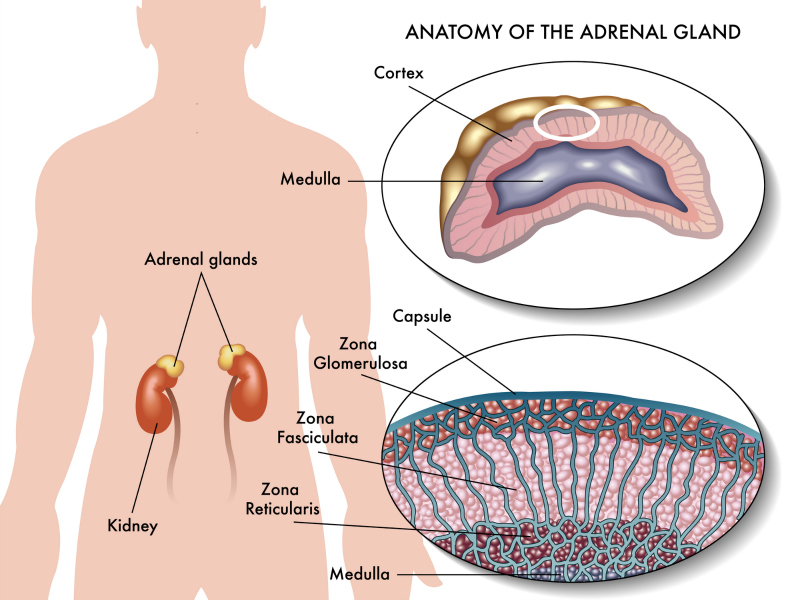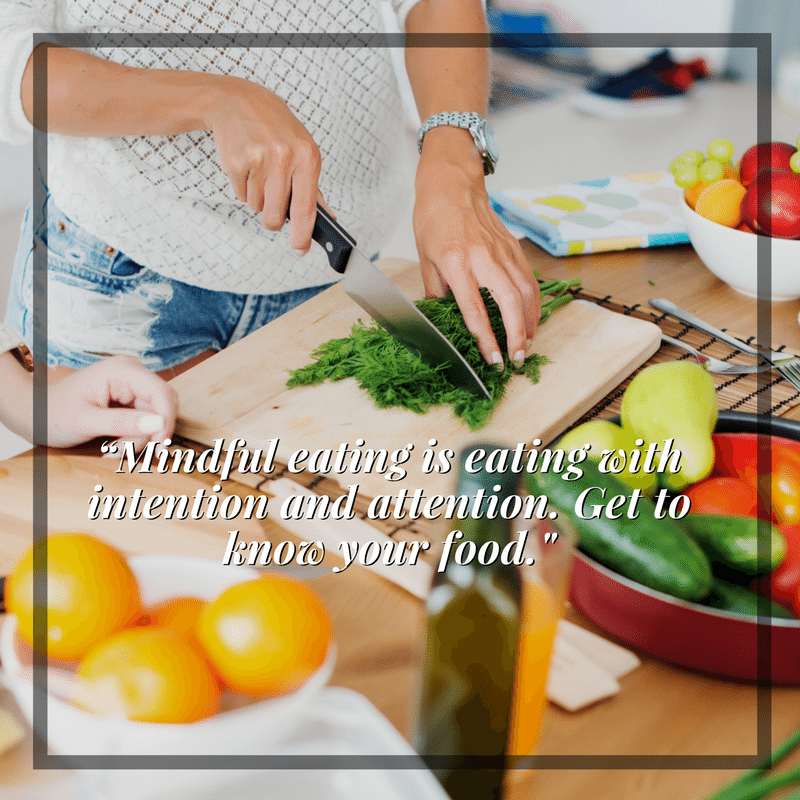7 Simple Steps to Eliminate Stress from Your Life

You already know that chronic stress is bad for you. You probably also know that stress increases your chance of cardiovascular disease, including heart attacks. But do you know that cortisol - a hormone in your body - is largely responsible for stress in our bodies?

Cortisol is one of many hormones (technically, a steroid hormone) produced by the human body. Cortisol is made by adrenal glands -- two small glands located atop the kidneys. It is a primary stress hormone.
Cortisol is associated with the temporary increase in energy production in the body, in a fight-or-flight (stressful) event. Along with helping us respond to stress, cortisol plays an indispensable part in other bodily functions, including some life-sustaining chemical transformations in the body like breaking-down of carbohydrates, fats, and proteins.
https://www.youtube.com/watch?v=7ugn924mFCo
Some causes included intake of foods with higher glycemic index, stress, consumption of alcohol , some medications and/or adrenal gland diseases cause spikes in cortisol levels in the body.
Some lifestyle changes can greatly affect the cortisol production in the body. Follow these to reduce/manage cortisol levels:
Exercise is the best way to stay healthy. Whether or not you go to a gym doesn’t matter, go out and move those arms, hop for some time and/or at least go for a walk/run. By using muscles, that usually remain dormant during most of the day, you do your body a favor, provide it necessary oxygen for optimal function.

But don’t exercise too much as it would only make it worse. Over-exercising will increase heart rate and with it the stress hormones, eventually. A moderate effort causes a temporary increase in stress hormones but long-term levels decrease. It is worth considering that, with intense workouts, it is believed that during the following night cortisol levels are also decreased. But, remember the goal here is to minimize effort, reduce stress and get fit.
If you are a beginner, try basic exercises like squats, push-ups, lunges, dumbbell rows, planks and jumping jacks and you are good to go! Sign up here for 28 days of bodyweight, 15-minute workouts that you can do in your home.
Exercise regularly! Consistency is the key.
Cortisol is thought to be a major age-accelerating hormone.
Meditation and mindful exercises rejuvenate mind and body. Peace and balance to mental and physical health are ensured by meditation.
Find a suitable time during the day, for 5-10 minutes sit, relax and practice meditation. You can also join yoga classes or search videos on how to do meditation and yoga. A positive mental state can do much more good to you, yes, better than exercise.

The best part is that meditation can be done anytime, anywhere, doing anything. While you are walking, doing chores, you can practice meditation. Early morning meditations can be more beneficial though. So, start doing early morning meditations and breathing exercises!
Don’t be a couch potato, plan trips, go outside, explore nature perhaps get on your bike (Bikes can save you a lot, both time and gas) and ride off to the sunset. See places you’ve never seen before, feel that air, let that breeze touch you and fill you with life. This will effectively reduce cortisol in your body.
However, prolonged travel by motorcycle may lead to motorcycle pain and may increase the stress hormone. Some tips for taking care of motorcycle pain :
https://www.facebook.com/daimanuel/videos/vl.1821424951256349/1705653412882350/?type=1
Another way to keep cortisol low is simply to be happy. Find little things that make you happy, write them down and look at the list every time you wake up. Add to your list every day. Smiling can elevate your mood, reduce stress hormones (yes, cortisol) and leave you feeling happy all day.

Hey! Why not take some time to watch old photos or videos that you’ve taken to remember the good old times you had? How about watching stand-up comedy, cat videos, memes or whatever makes you laugh?
You are an adult but cartoons are not for children only!
Friends and family can offer a great deal of happiness, and stress as well. Consider pausing some relationships that don’t serve you well, that is to say, talk more to people who understand you, support you and you feel happy around. Learn to forgive for better emotional and physical health. This will surely mitigate stress hormones in the body.
Yes! Pets keep you engaged and joyful throughout the day. Consider a dog, all it wants is you to feed it, love it and take it outside for a walk!
Stay hydrated. Drink enough water during the day to maintain better blood flow and cortisol levels.
Apart from regular water, green teas or honey-infused Iced tea is a good idea most of the time to feel relaxed.
Include probiotics in your food. Probiotics are beneficial bacteria cultures that make a happy gut. The improve digestion and intestinal absorption. You also need enzymes to process the foods you’ve eaten.

Fruits provide your body with healthy and digestion promoting enzymes. They are rich in dietary fiber and vitamins
Take omega-3 fatty acid rich foods, they are thought to reduce cortisol. Include in your diet, vitamin-C foods. They might reduce cortisol.
Having dark chocolate increases nitric oxide. Nitric oxide is a naturally occurring chemical in our bodies.
Nitric oxide acts on small receptors in our blood vessels and prompts the vessels to dilate. This process lowers blood pressure and stress hormones like Cortisol and Adrenocortical hormones.
Our body has a built-in clock that works in sync with the rising and setting sun. Late night staying awake disrupts this sync. Don’t do that, also, smartphones here are culprits in messing with our built-in clock. They emit blue light which tricks our brain into thinking-it’s still day, destroying the sleep/wake cycle.

Leave your phones away from your body and get an alarm clock, no excuses. Before sleeping make sure room temperature is optimal and lights are as dim as possible or better yet, off.
It is recommended to start small, to incorporate a few better habits in your life, then go big!
Jessica is a road sports enthusiast and journalist. She is enthusiastic about attending events like an offroad car and motorbike racing. Jessica is both thrilled about seeing this types of competition and capturing such moments on her camera. She spends her free time building her own custom motorbike as a hobby.
What is Cortisol?

Cortisol is one of many hormones (technically, a steroid hormone) produced by the human body. Cortisol is made by adrenal glands -- two small glands located atop the kidneys. It is a primary stress hormone.
Cortisol is associated with the temporary increase in energy production in the body, in a fight-or-flight (stressful) event. Along with helping us respond to stress, cortisol plays an indispensable part in other bodily functions, including some life-sustaining chemical transformations in the body like breaking-down of carbohydrates, fats, and proteins.
https://www.youtube.com/watch?v=7ugn924mFCo
What causes Cortisol spike?
Some causes included intake of foods with higher glycemic index, stress, consumption of alcohol , some medications and/or adrenal gland diseases cause spikes in cortisol levels in the body.
7 Lifestyle Tips to Lower Your Cortisol Levels
Some lifestyle changes can greatly affect the cortisol production in the body. Follow these to reduce/manage cortisol levels:
Tip 1. Exercise
Exercise is the best way to stay healthy. Whether or not you go to a gym doesn’t matter, go out and move those arms, hop for some time and/or at least go for a walk/run. By using muscles, that usually remain dormant during most of the day, you do your body a favor, provide it necessary oxygen for optimal function.

But don’t exercise too much as it would only make it worse. Over-exercising will increase heart rate and with it the stress hormones, eventually. A moderate effort causes a temporary increase in stress hormones but long-term levels decrease. It is worth considering that, with intense workouts, it is believed that during the following night cortisol levels are also decreased. But, remember the goal here is to minimize effort, reduce stress and get fit.
If you are a beginner, try basic exercises like squats, push-ups, lunges, dumbbell rows, planks and jumping jacks and you are good to go! Sign up here for 28 days of bodyweight, 15-minute workouts that you can do in your home.
Exercise regularly! Consistency is the key.
Tip 2. Meditation
Cortisol is thought to be a major age-accelerating hormone.
Meditation and mindful exercises rejuvenate mind and body. Peace and balance to mental and physical health are ensured by meditation.
Find a suitable time during the day, for 5-10 minutes sit, relax and practice meditation. You can also join yoga classes or search videos on how to do meditation and yoga. A positive mental state can do much more good to you, yes, better than exercise.

The best part is that meditation can be done anytime, anywhere, doing anything. While you are walking, doing chores, you can practice meditation. Early morning meditations can be more beneficial though. So, start doing early morning meditations and breathing exercises!
Tip 3. Travel
Don’t be a couch potato, plan trips, go outside, explore nature perhaps get on your bike (Bikes can save you a lot, both time and gas) and ride off to the sunset. See places you’ve never seen before, feel that air, let that breeze touch you and fill you with life. This will effectively reduce cortisol in your body.
However, prolonged travel by motorcycle may lead to motorcycle pain and may increase the stress hormone. Some tips for taking care of motorcycle pain :
- Stretch your shoulder. Assisting with your right hand by placing it near the elbow of the left hand, hug the left arm in and feel the stretch in the left shoulder. Perform the same stretch on the right shoulder.
- Do squats and lunges.
- Stretch your back by touching your hands to feet. If you can’t touch your feet, try to reach them. Keep the tension until you feel a good stretch.
https://www.facebook.com/daimanuel/videos/vl.1821424951256349/1705653412882350/?type=1
Tip 4. Smile/Laugh often
Another way to keep cortisol low is simply to be happy. Find little things that make you happy, write them down and look at the list every time you wake up. Add to your list every day. Smiling can elevate your mood, reduce stress hormones (yes, cortisol) and leave you feeling happy all day.

Hey! Why not take some time to watch old photos or videos that you’ve taken to remember the good old times you had? How about watching stand-up comedy, cat videos, memes or whatever makes you laugh?
You are an adult but cartoons are not for children only!
Tip 5. Relationships
Friends and family can offer a great deal of happiness, and stress as well. Consider pausing some relationships that don’t serve you well, that is to say, talk more to people who understand you, support you and you feel happy around. Learn to forgive for better emotional and physical health. This will surely mitigate stress hormones in the body.
Why not get a pet?
Yes! Pets keep you engaged and joyful throughout the day. Consider a dog, all it wants is you to feed it, love it and take it outside for a walk!
Tip 6. Eat & Drink well
Stay hydrated. Drink enough water during the day to maintain better blood flow and cortisol levels.
Apart from regular water, green teas or honey-infused Iced tea is a good idea most of the time to feel relaxed.
Include probiotics in your food. Probiotics are beneficial bacteria cultures that make a happy gut. The improve digestion and intestinal absorption. You also need enzymes to process the foods you’ve eaten.

Fruits provide your body with healthy and digestion promoting enzymes. They are rich in dietary fiber and vitamins
Take omega-3 fatty acid rich foods, they are thought to reduce cortisol. Include in your diet, vitamin-C foods. They might reduce cortisol.
Having dark chocolate increases nitric oxide. Nitric oxide is a naturally occurring chemical in our bodies.
Nitric oxide acts on small receptors in our blood vessels and prompts the vessels to dilate. This process lowers blood pressure and stress hormones like Cortisol and Adrenocortical hormones.
Tip 7. Sleep Enough
Our body has a built-in clock that works in sync with the rising and setting sun. Late night staying awake disrupts this sync. Don’t do that, also, smartphones here are culprits in messing with our built-in clock. They emit blue light which tricks our brain into thinking-it’s still day, destroying the sleep/wake cycle.

Leave your phones away from your body and get an alarm clock, no excuses. Before sleeping make sure room temperature is optimal and lights are as dim as possible or better yet, off.
It is recommended to start small, to incorporate a few better habits in your life, then go big!
Author Bio:
Jessica is a road sports enthusiast and journalist. She is enthusiastic about attending events like an offroad car and motorbike racing. Jessica is both thrilled about seeing this types of competition and capturing such moments on her camera. She spends her free time building her own custom motorbike as a hobby.




































































































